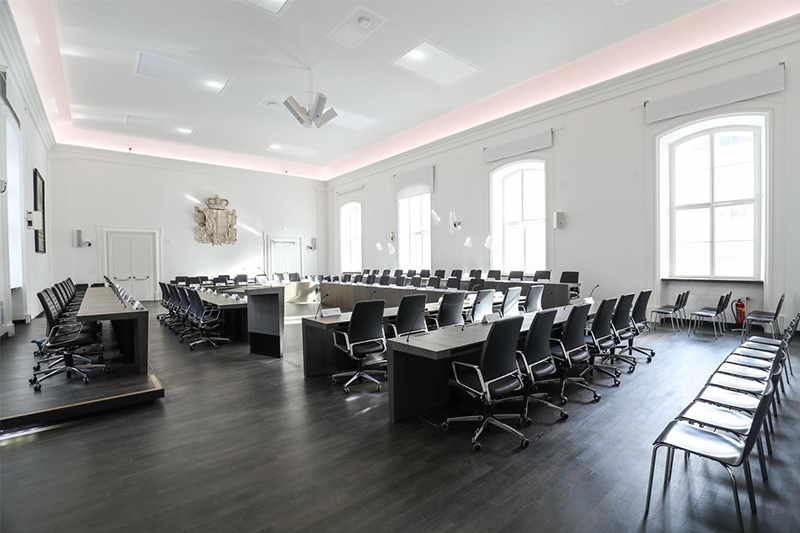The Salzburger Landtag and Brussels

Studying at the Paris Lodron University of Salzburg is full of surprises. In our seminar on “Europe beyond Brussels”, we had an opportunity to talk to Mag. Josef Hörmandinger, the Head of the Legal and Information Unit of the Salzburger Landtag (Salzburg Regional Parliament) about how he sees Salzburg’s efforts to influence EU decisions from his perspective.
A brief history of Austria in the EU and the Austrian constitution
For starters, Mag. Hörmandinger gave us a brief overview of Austria’s integration into the EU. He underlined the important role of the Treaty of Maastricht in 1993 and the creation of the European Committee of the Regions in Brussels. At the time, Austria was in the final round of its accession negotiations to the EU and the regions soon took part in the preparation of some EU decisions. In his own words:
“There was an amendment to the federal constitution that the government had to inform the national parliament about everything that takes place at the EU level. Another point was making sure that there is an information flow between the federal and state governments of Austria.
In the 90s, the government of Austria, in certain situations, also had to include the opinion of state governments when preparing the national position of Austria in the Council of the EU. So, the Austrian regions together sometimes can even bind the Austrian federal government to adopt certain bargaining positions. Thus, Salzburg has gained the power of delivering a message to the EU through the federal government”.

The Treaty of Lisbon and the principle of subsidiarity
The Treaty of Lisbon brought about another important innovation in anchoring the principle of “subsidiarity” in EU decision-making. In short, this means that decisions should always be taken at the lowest level, where it can be addressed effectively.
This meant that all decisions that can effectively be taken at the local or regional (or also, beyond that, the national) level, should not be subject to decisions by the EU. The EU, by contrast, only acts in areas where states or regions cannot effectively achieve the desired objectives.
Mag. Hörmandinger gave us the “subsidiarity check” regarding organic agricultural production as a real-life example. In this case, the opinion of the regional government of Salzburg was taken into account by the European Commission.
Working the EU from Salzburg
Communication between the Regional Parliament and European institutions are an inherent part of the functioning of the unit in which Mag. Hörmandinger works. He gave us the concrete example that every year he receives emails together about 60 thousand (!) pages long about what the EU is preparing at different levels.
Of course, no one can read all those emails and most of them are actually not important for the regions. But there is no way to know which ones are not important without looking at all of them. Mr. Hörmandinger was also frank in sharing with us that, sometimes, information gets lost and there are decision prepared at the EU level that Salzburg may pick up only a bit later.
But, in general, the Salzburger Landtag is well integrated into Brussels decision-making structure through various channels and, in the vast majority of cases, Salzburg can shape decisions from very early in the discussion process.
Keeping in touch
Mag. Hörmandinger also curates the “EU Radar Salzburg”, which is an information platform that contains important news and matters relevant for his colleagues and the general public. You can find the link here. We were also very happy to hear that students that need to do an internship as parts of their studies can do so at the Salzburger Landtag also in English.
The meeting with Mag. Hörmandinger was not only informative, but also motivated us to engage more with EU decisions taking shape in Brussels. We want to sincerely thank Mag. Hörmandinger for this time.
The meeting was moderated by Sofiia Pedos and Tamar Mkurnalidze, two exchange students at the Paris Lodron University of Salzburg, who also kindly agreed to write this blog post.
Photo Credits:
Title photo: Salzburger Landtag/Franz Neumayr
Screenshot: seminar




